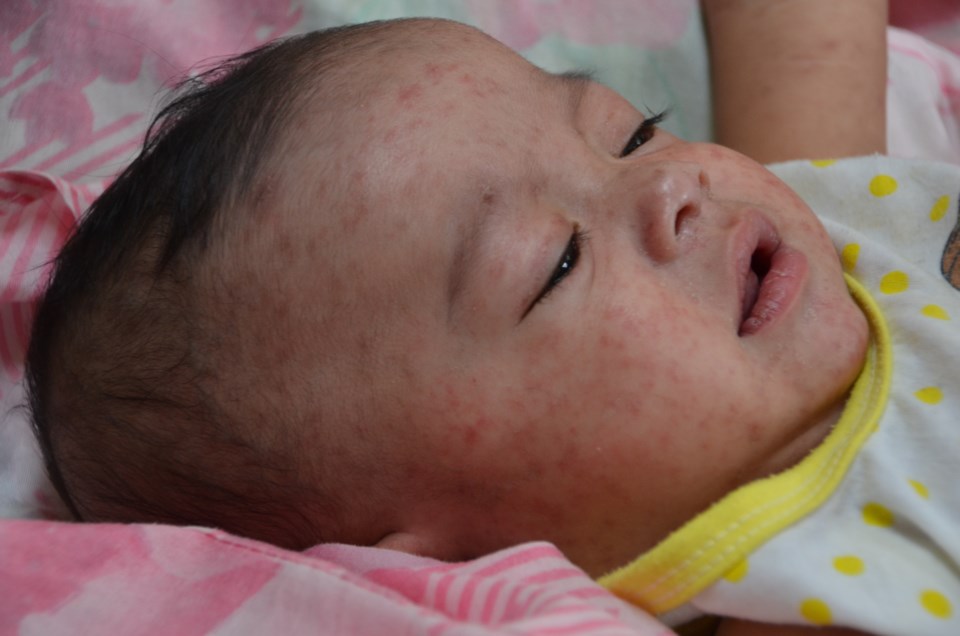No secondary cases of measles have been reported in Alberta since a public health alert was issued on April 24, according to Alberta Health Services.
An individual with measles arrived at the Edmonton International Airport on April 16, and others were potentially exposed to the infection in public settings before the case was lab-confirmed a week later.
Though there have been no secondary infections yet reported, AHS is urging Albertans to make sure their vaccinations are up to date to prevent outbreaks.
"We encourage Albertans who may not be up to date for their recommended immunizations to book an appointment and get immunized," a spokesperson for AHS said in an e-mail.
"In Alberta, measles vaccine is offered, free of charge, through Alberta’s publicly funded immunization program. Children in Alberta typically receive their first dose of measles vaccine at 12 months of age, and their second dose at 18 months of age."
Measles is an extremely contagious disease that spreads easily through the air. Symptoms typically begin within 10 days of exposure, and include cough, runny nose, or fever in the early stages, and a red blotchy rash that appears three to seven days after the onset of fever. Severe complications can result from infection, and between one and three in 1,000 cases are fatal.
There is no treatment for measles, but the disease is preventable as per cent doses of the vaccine offer 97 per cent protection.
Once eradicated from Canada, the disease has been making a global comeback. In 2023, only 12 cases of measles were reported in Canada. There have been 69 cases confirmed nationwide already this year, and health officials say the potential for outbreak is high.
The reason for this resurgence lies in declining rates of immunization, said Dr. Ameeta Singh, Clinical Professor in the Division of Infectious Diseases at University of Alberta.
"That's the main reason, sadly," Singh said. "We've made such inroads into disease control with immunization, and we've lost a lot of that during the pandemic with people not getting immunized."
Health Canada's target coverage for measles, mumps, rubella (MMR) immunization is to have 95 per cent of children receive two doses by their seventh birthday. As of 2023, only 73 per cent of seven-year-old kids in Alberta were fully immunized, down from 81 per cent in 2014. The north zone has the lowest immunization rate in the province with only 64 per cent of children having both MMR doses by age seven.
Immunization rates for other preventable childhood diseases have also fallen in Alberta. Just over 70 per cent of children have been fully vaccinated against pertussis (whooping cough). In the north and south zones, even fewer children are immunized, and the regions have experienced persistent outbreaks of pertussis in recent years.
Between Nov. 2022 and Feb. 2024, there were 452 cases of whooping cough in the south zone, and 365 in the north zone, compared to 39 cases in the Edmonton zone.
These outbreaks of pertussis could serve as a preview of how and where measles might spread if introduced into communities in Alberta, though Singh says the risk of transmission is higher.
“Measles is even more infectious. Its ability to spread is much greater than whooping cough. And so, if people are not immunized and living in close quarters, etc., then it is a lot easier for it to spread.”



